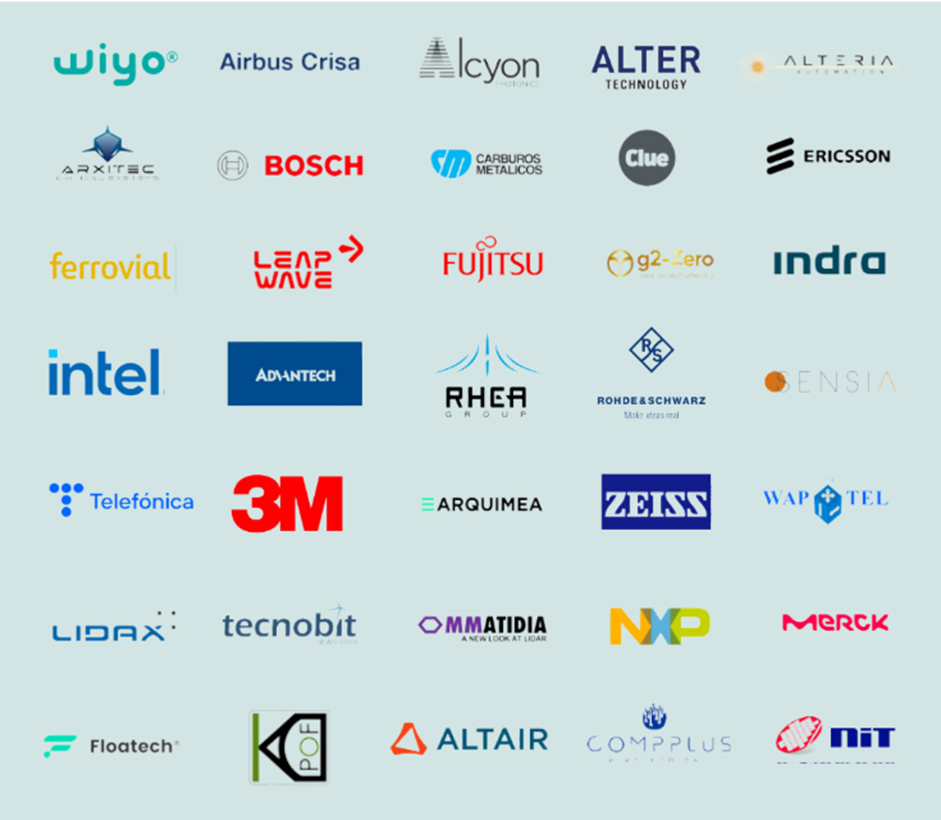
Semiconductors in the Community of Madrid
A robust network of Technology Centres, Universities and Companies
specialising in areas such as microelectronics and photonics, bringing together
cutting-edge innovations and promoting highly qualified human capital.
Also interested in other INDUSTRIES?
Madrid, a strategic hub for Semiconductors
The Community of Madrid, part of the European Alliance of Regions for Semiconductors (ESRA), stands out for its solid scientific, academic and business capabilities in microelectronics and photonics. The region has key agents in part of the sector's value chain: design, technology integrators and component manufacturers, R&D centers, educational centers and final demand.
Madrid stands out for its favourable business environment, training programmes, qualified labour and availability of land and energy, together with strategic connectivity, both technologically and logistically. The main challenge is to incorporate companies focused on activities such as manufacturing, assembly and testing, into the chain.
Some Driving companies leading the sector
The Cluster of Technological Innovation and Talent in Semiconductors (CITT) integrates nearly 20 business groups, the six public universities in the region, the seven Madrid Institutes for Advanced Studies (IMDEA) and the Madri+d Foundation. This cluster facilitates public-private synergies, detects needs and strengths of the sector, and promotes knowledge transfer.
The Spanish Association of the Semiconductor Industry (AESEMI) has companies HQ´d in the Community of Madrid such as Alcyon Photonics, Altair, ArXiTEC Critical Systems, Icompplus Electronics, LeapWave Technologies, Sensia, Wiyo and Wooptix.
Segmenting the semiconductor value chain in Design and Manufacturing, some Madrid Design companies are Alcyon Photonics, Alma Technologies, Arquimea, Knowledge Development, Ommatidia, Thales, Waptel, Wiyo and NIT Technologies and some Manufacturing companies are Arxitec, Cisco, Inelcomm Insyte, Sapec, Siemens, Teydisa, Bosch, Sensia and Renesas.
Small pilot lines specialized in III-V semiconductors and a group of photonics companies with great growth potential supported by advanced infrastructures to manufacture prototypes and develop innovative technologies further strengthen Madrid's strategic position in this sector.

Research Institutions
The Madrid Institute for Advanced Studies in Nanoscience (IMDEA Nanociencia) provides new capabilities for research, technological development and innovation in the field of Nanoscience, Nanotechnology and Molecular Design. The Institute of Micro and Nanotechnology (IMN - CNM - CSIC) has a micro and nanofabrication (MiNa) service that meets the most unique and demanding requirements. Its MBE Group is an international leader in molecular beam epitaxy (MBE) and the development of nanostructures applied to optoelectronics and laser technology, especially in information technologies and photovoltaic energy. The Nanophotonic Devices Group (NANOPOD) of MBE specializes in nanophotonics, developing applications in optical telecommunications, energy and biomedicine and stands out for its work on photonic crystal lasers, single photon emitters and high-speed photodetectors.
The Institute of Optoelectronic Systems and Microtechnology (ISOM - UPM) which is part of the ICTS Network of Micronanofabrication Clean Rooms (MICRONANOFABS), dedicated to the micro and nano manufacture of chips, has advanced equipment to manufacture electronic materials other than silicon and develop electronic, optical, optoelectronic and magnetic devices. Its facilities include 400 m² of clean rooms, 300 m² of characterization laboratories and 200 m² of instrumentation and electronics laboratories.
In October 2024, the creation of a pioneering Network of Cleanrooms for Chip Manufacturing dedicated to micro and nano chip manufacturing was announced, in collaboration with entities such as IMDEA Nanociencia, universities and cutting-edge companies, which positions the region as a leader in technological development at the European level.
Concentration of Talent and Human Capital
Several universities offer specialized training programs in the semiconductor industry like:
The Technical University of Madrid (UPM) has the UPM-INDRA Chair in Microelectronics (CAUPIME) focused on areas such as microelectronic circuit design, new materials and devices, technological processes, and chip testing and packaging. Also a series of courses designed to provide a complete specialization in key areas of microelectronics, semiconductors, photonics and related technologies can be combined to obtain an Expert Degree and registration is free, financed by CAUPIME.
The Autonoma University (UAM) has the Electronics and Semiconductors Group dedicated to the training of specialists in integrated circuit technology and design ranging from conception and design to the manufacture and characterization of integrated circuits.
The Carlos III University (UC3M) has the EPIQ University-Business Chair focused on electronic circuits and integrated photonics for quantum technologies. In addition, the EPICPack project is focused on advanced technologies for testing, assembly and encapsulation of electronic and photonic integrated circuits.
A growing startup ecosystem
The region is home to more than 45 Tech Companies founded in recent years in the microelectronics and semiconductor industry. In terms of semiconductor startup jobs, Madrid ranks 4th in Europe (4.7k employees) and its companies have raised more than €80M with a total valuation of €250m.
Wooptix, KD Tech, Frenetic, Wiyo, A4Cell, Floatech, Alcyon Photonics, Inspiration-Q and Eye4Sky are some of the Tech Companies in Madrid that have closed significant investment rounds in recent years.
Semiconductor Startups in Madrid
Employees
4.7k (4th of European Hubs)
Some prominent Semiconductor Agents in Madrid
Industry Description
The semiconductor industry encompasses the design, manufacture and distribution of integrated circuits and electronic components essential to advanced technologies. These include microprocessors, sensors, and chips used in key sectors such as artificial intelligence, telecommunications, automotive, and consumer electronics. Semiconductors are fundamental to technological development, enabling innovative solutions in areas such as computing, renewable energy and connectivity. Its cross-cutting importance drives economic growth and encourages digitalization in global industries. In recent years, multiple European industrial sectors have suffered the shortage of microchips, becoming a strategic industry.
The global growth of the photonics sector, together with its application in key industries such as telecommunications, energy, space and defence, represent significant opportunities. Photonics has been recognised by the European Commission as a Key Enabling Technology, which has led to the creation of financial instruments at national level, such as the PERTE Chip in Spain, and at European level to support the development of the sector.
Some links and references

